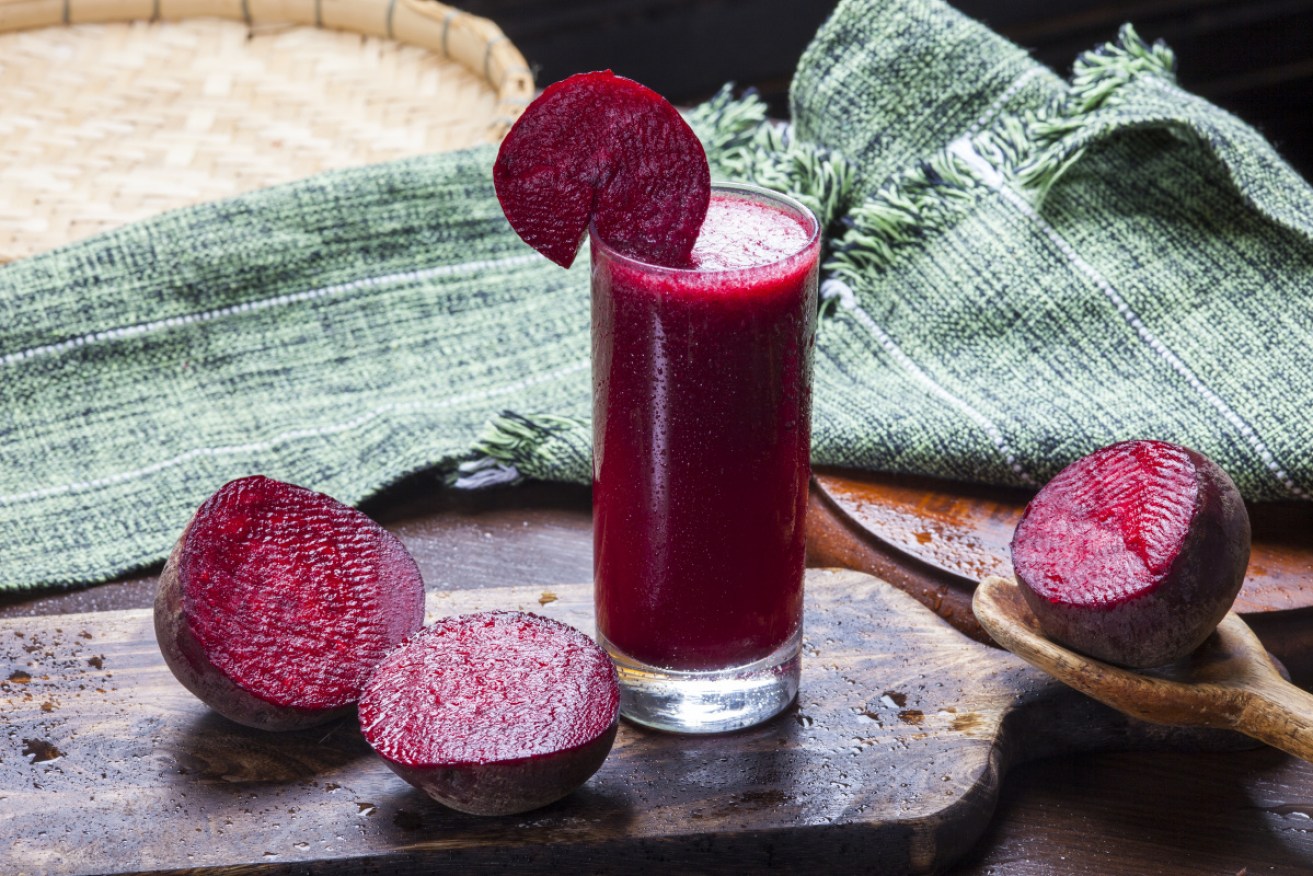Beetroot juice and muscles: The ingredient that lifts performance


This magic elixir delivers better performance every time. Photo: Getty
In 2018, the International Olympic Committee formally recognised beetroot as a legitimate sports food. On what basis?
It cited multiple trials in competition settlings that found professional athletes who had consumed beetroot juice enjoyed a significant improvement in endurance.
The studies go back more than a decade.
The 2011 study that got the ball rolling involved professional cyclists who, after drinking beetroot juice, saw their pedalling performance improve by 2.8 per cent.
Which is a lot when you consider that anything that gives an elite athlete the tiniest edge is a big deal.
It’s not just the elites who benefit
Older people and less-fit athletes get an even bigger boost.
A 2016 study found that drinking beetroot juice every day improved exercise endurance by 24 per cent and significantly reduced resting systolic blood pressure in elderly patients.
There are studies that suggest beetroot juice is good for lowering cholesterol, supporting liver health, quickly improving muscle performance in people suffering heart failure, and is a good source of folate and potassium.
So what’s the secret?
Beetroot contains high levels of nitrates.
During digestion, these are converted into nitric oxide, a compound that relaxes and widens blood vessels – and increases the delivery of nutrients and oxygen to muscles during exercise.
It’s this double whammy of quick vasodilation and efficient delivery to the muscles that earns beetroot its spot in the sports food hall of fame (if there was such a thing).
Well, that’s what appears to be happening
Most of the studies on the effect of nitrates from beetroot have been observational. One group of athletes consume the magic elixir. The other gets a placebo.

Nitrates are a gift to elite athletes. But even more so to your average Joe. Photo: Getty
The magic elixir delivers better performance every time.
Scientists, though, prefer to be certain that their findings are true, and not just a weird coincidence involving a factor they hadn’t as yet identified.
So … it seems that nitrates target muscles.
But has anyone actually seen it?
They have now
In a clever new study, researchers at the University of Exeter and the US National Institutes of Health gave a dose of isotope-labelled nitrate from beetroot to 10 healthy volunteers.
This allowed the scientists to trace the nitrate and how it was distributed to the participants’ saliva, blood, muscle and urine.
An hour after the nitrate was taken, participants were asked to perform 60 contractions of the quadriceps – the thigh muscle active while straightening the knee – at maximum intensity over five minutes on an exercise machine.
Hey presto!
The team found a significant increase in the nitrate levels in muscle.
Further, this nitrate boost caused an increase in muscle force of seven per cent, compared to when the participants took a placebo.

A volunteer giving his all. Photo: Jim Wileman
Andy Jones, professor of applied physiology at the University of Exeter, said: “Our research has already provided a large body of evidence on the performance-enhancing properties of dietary nitrate, commonly found in beetroot juice.
“Excitingly, this latest study provides the best evidence to date on the mechanisms behind why dietary nitrate improves human muscle performance.”
Why this is important
Previous studies had found an increase of nitrate in tissue and body fluid after ingesting labelled dietary nitrate.
By using the tracer in the new study, researchers “were able to accurately assess where nitrate is increased and active, and also shed new light on how the nitrate we consume is used to enhance exercise performance”.
Co-author Barbora Piknova is a research collaborator and staff scientist in the National Institute of Diabetes and Digestive and Kidney Diseases.
She said: “This study provides the first direct evidence that muscle nitrate levels are important for exercise performance, presumably by acting as a source of nitric oxide.”
Dr Piknova said these results have significant implications beyond the exercise field. She said that targeting neuromuscular and metabolic diseases related to nitric oxide deficiency were possibilities.








